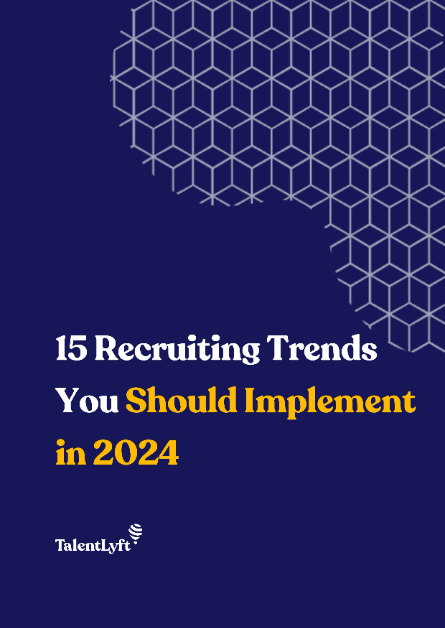
Are recruitment chatbots here to stay? Can they really replace recruiters? Should you invest in a recruitment chatbot? What do candidates think about interacting with recruitment chatbots?
Are recruitment chatbots here to stay? Can they really replace recruiters? Should you invest in a recruitment chatbot? What do candidates think about interacting with recruitment chatbots?
Rapid technology development affects all areas of life and changes many professions. If a few years ago chatbots were a curiosity, now they help millions of users every day. According to ResearchAndMarket, the global chatbots and virtual assistants market reached $ 17.17 billion in 2019 and will grow by 30% in 2020. 😲
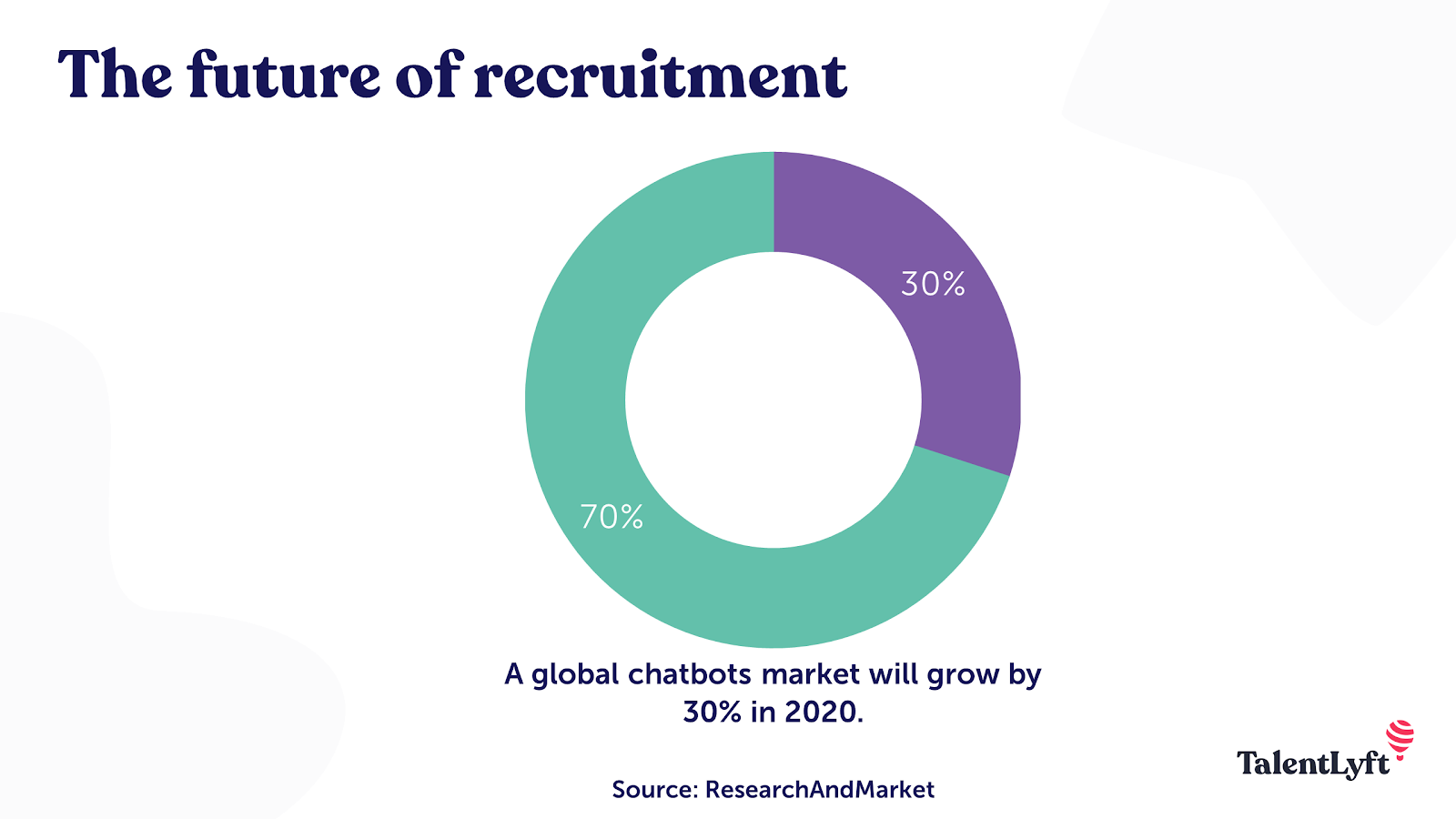
Chatbots have entered our life so organically that most people did not even notice it. With their help, we pay utility bills, carry out banking operations, sign contracts, delegate tasks, and much more.
There are over 300,000 bots only on Facebook for today. This tendency has not missed the recruiting sphere either. What will happen in the future? Is the time when recruitment bots will hire candidates just around the corner? 🤔
The robotization of HR and recruitment processes is inevitable. Digital tools take over routine recruitment processes, freeing up the resources of HR managers to solve more strategic problems.
Recruiters receive a large number of emails and calls that contain similar questions related to job descriptions, key requirements, corporate policies, salaries. It takes a long time to respond to each candidate or redirect them to the FAQ page on the company's website. And a chatbot can cope with these tasks in no time.
Let’s study the potential of recruitment chatbots in more detail. 🧐
A recruitment chatbot is a program that, using a large number of digitized dialogs, was taught to create live communication through instant messengers. Chatbots are used when it is necessary to convey certain information to a large number of candidates, provide answers to typical questions, or collect specific information from the candidates.
Chatbots improve the speed of selection and attraction of candidates, that is, the processing of resumes, databases, and keywords will speed up. Plus, the bot can carry out various types of testing and initial verification of important professional parameters much faster than a person. So, it will provide a list of the most suitable candidates for the position of French tutor or back-end developer in minutes.
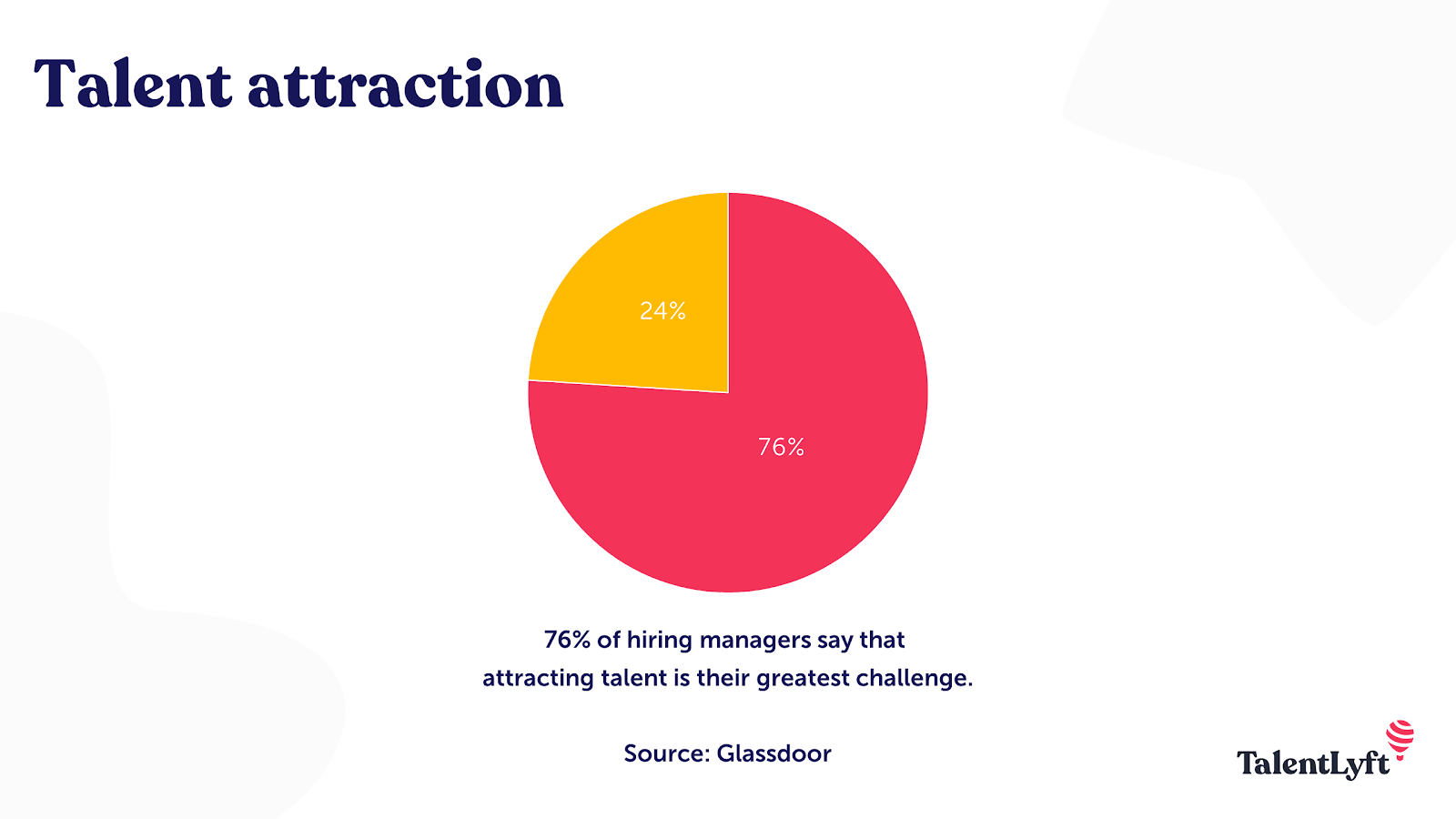
The bot will briefly describe the vacancy, and if the job seeker is interested, it will accept the application and send it to the recruiter. This application will indicate whether the candidate meets all the requirements of the job. An HR specialist only needs to appoint an interview. But this stage can also be automated by connecting a calendar of meetings with candidates to the bot. It will check a convenient time with the candidate and suggest available options.
Besides recruiting, chatbots are used in the adaptation of candidate assessment tests, in various employee surveys, for example, for engagement, company loyalty, etc. In the HR industry, chatbots can be called one of the most efficient digital trends. Juniper Research states that by 2022, HR and recruiting chatbots have the potential to reduce business costs by $8 billion.
Implementation of a chatbot allows us to automate and simplify the HR routine. The bot conducts surveys and questionnaires, gives the recruiter a ready-made database of applicants, and determines the sequence of interviews. Reducing the need for the number of recruiters significantly reduces costs and minimizes staff rotation.
Chatbots successfully cope with the following tasks:
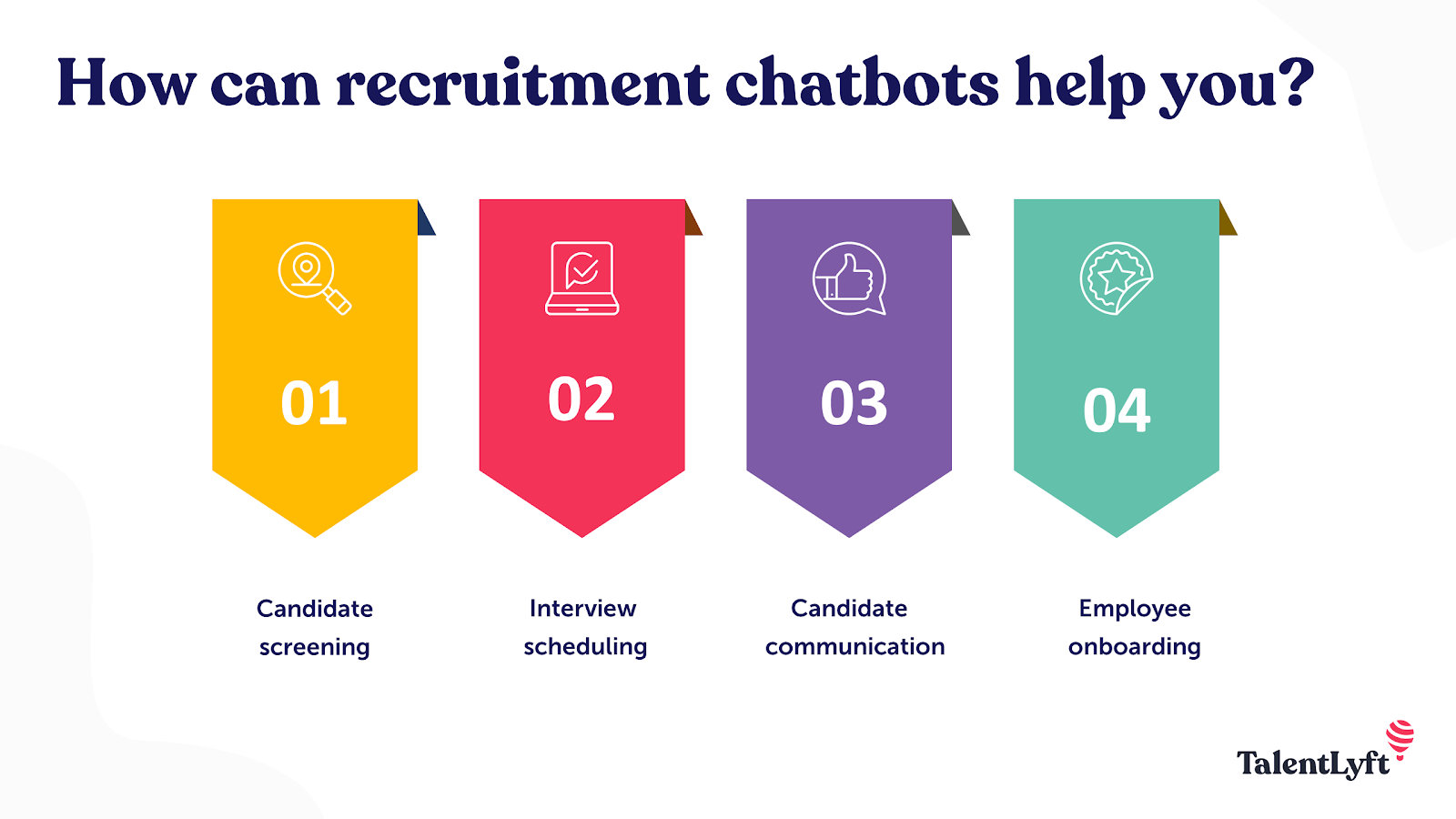
A chatbot accumulates not only key information about the potential employee but also performs background checks. Every company wants to get relevant candidates that do not need to be manually filtered out later. According to iCMS statistics, HR screening and reviewing by the hiring manager takes 60% of the time from the selection process for a particular candidate.
Bots work around the clock and with a large number of tasks at the same time. They can save time not only for recruiters but also for candidates - resume screening begins immediately after submission, in real-time. Moreover, they build interaction with potential applicants in a way to keep them interested.
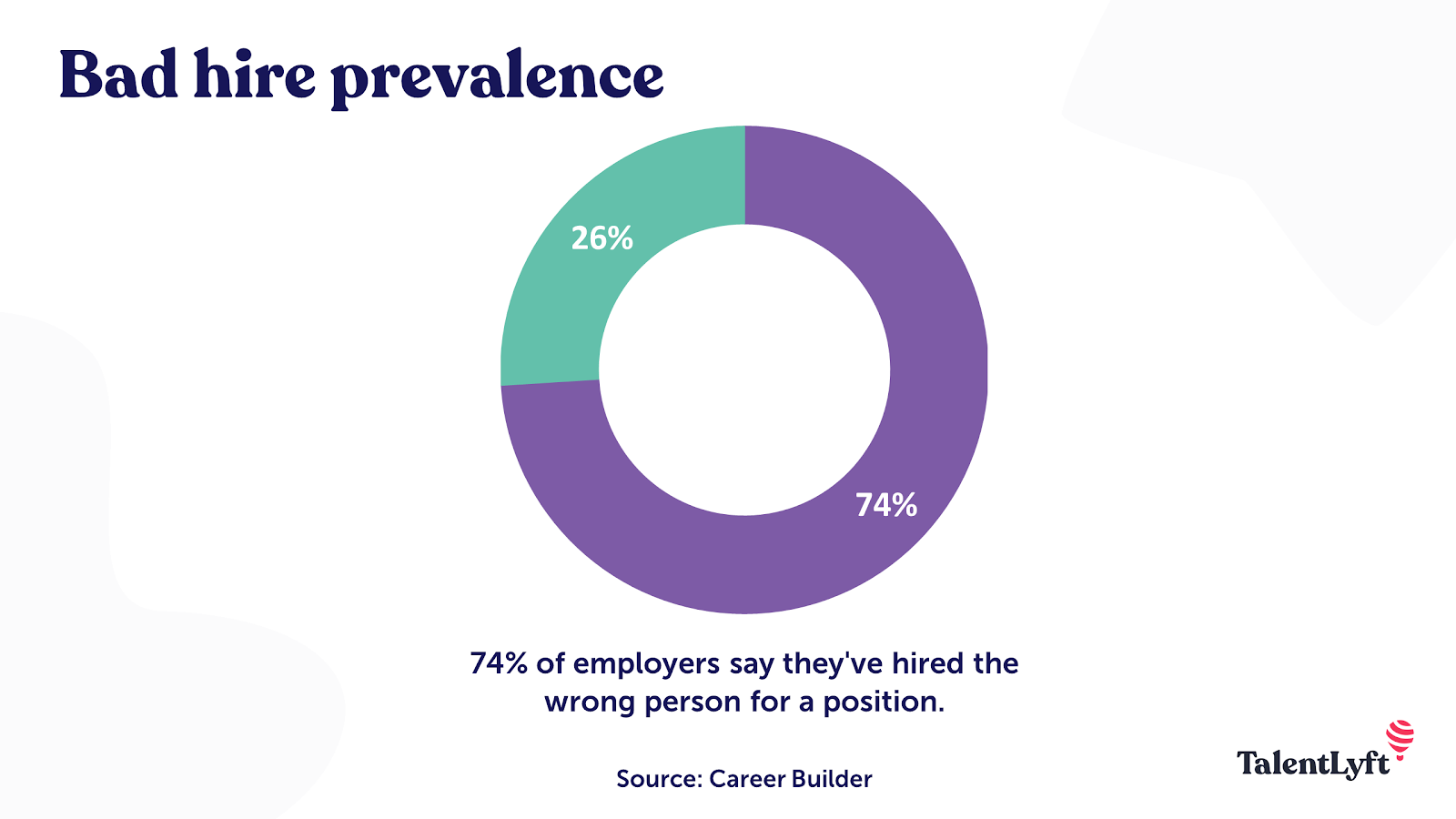
When the candidate screening is successfully completed, chatbot passes on to the next hiring stage. The bot sends a message inviting a candidate to an interview. The time of the interview is recorded in the calendar built into the system, and the candidate only has to choose the appropriate option. Chatbots are very accurate, helping to avoid double booking.
The traditional way of interview appointment by HR specialists usually takes much longer. Cronofy Interview Scheduling Survey revealed that 56% of recruiters spend more than half a day scheduling interviews. It affects your employer brand and the best candidates give preference to the competitors.
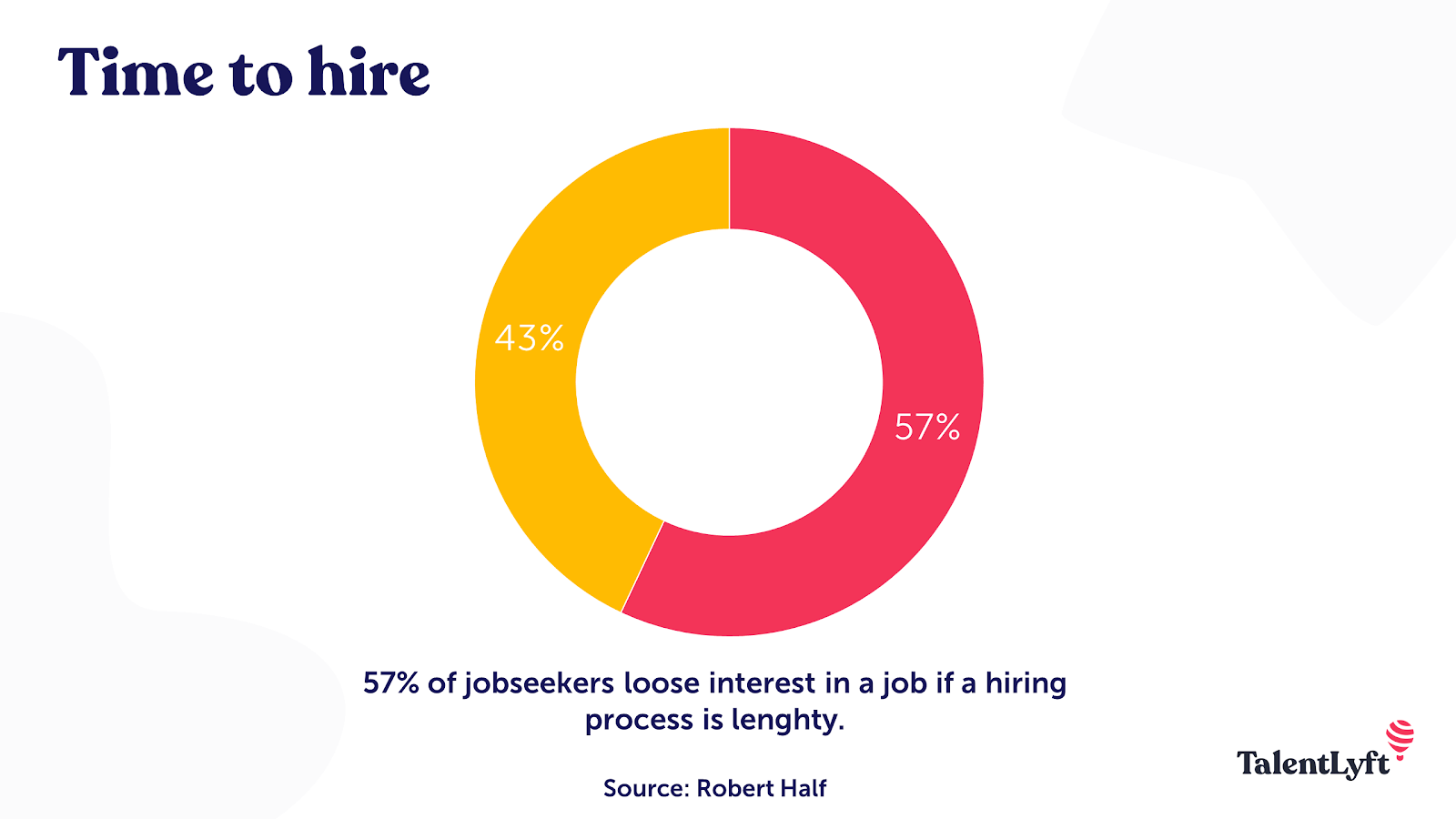
Candidates always have typical questions, and robots can immediately provide answers they are looking for. Candidates often search for company information, and chatbots can be very informative here.
These AI-based assistants are especially relevant for millennials who use mobile platforms for job searches. A recent survey by Allegis shows that 58% of job seekers feel comfortable interacting with chatbots.
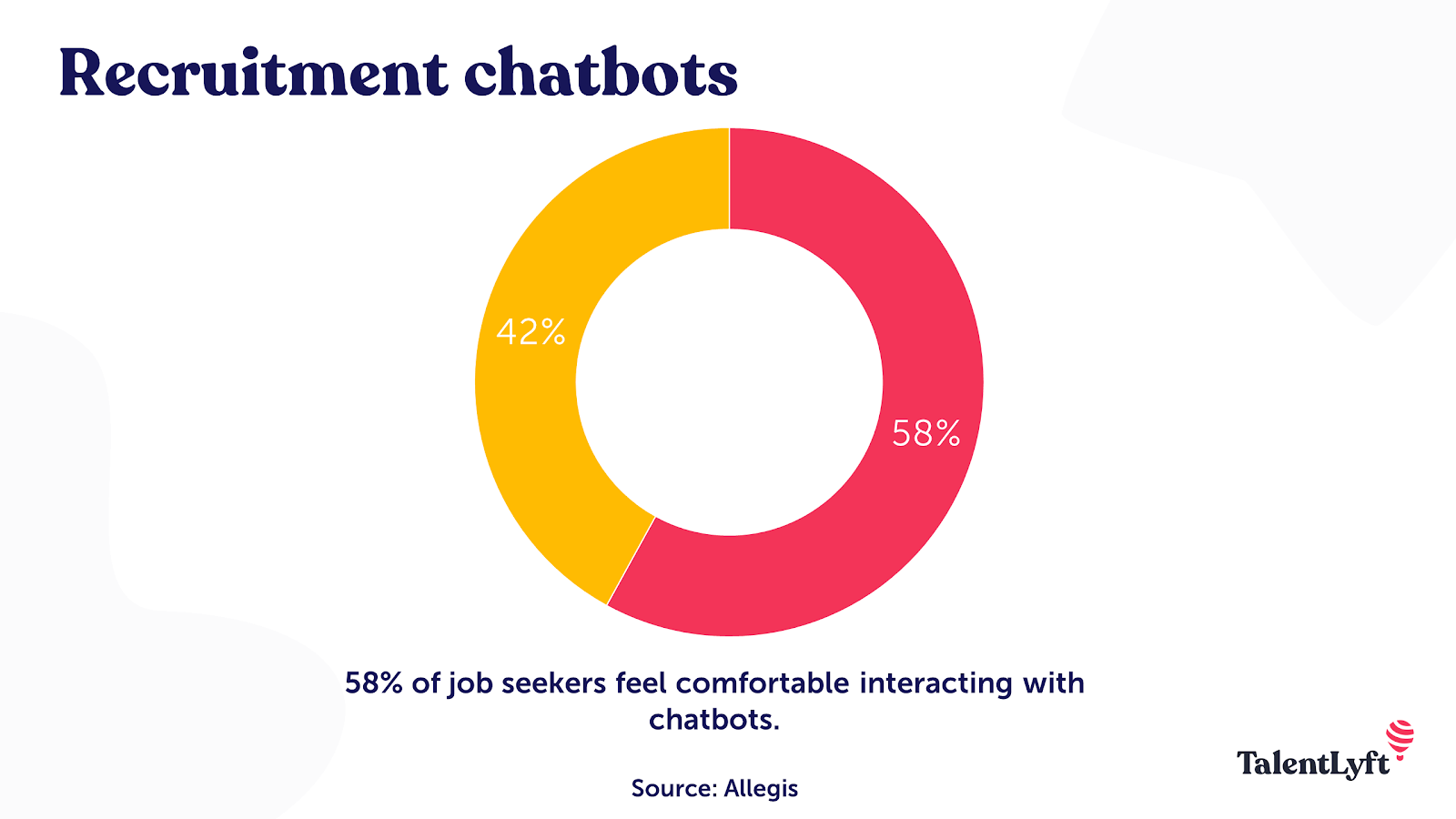
Usually, as a part of the onboarding process, a new employee gets a mentor, who brings him to speed, but questions always remain. And then everyone falls into a vicious circle: many newcomers are embarrassed to ask questions again, and current employees of the company and HR specialists get tired of answering such questions.
This problem is especially relevant when onboarding remote employees who do not sit in the office and cannot quickly ask a neighbor a question in the open space. The chatbot is integrated into the company's internal messenger (Slack, Skype, Telegram, etc.) and instantly give answers to any questions 24/7. It greatly reduces the adaptation period.
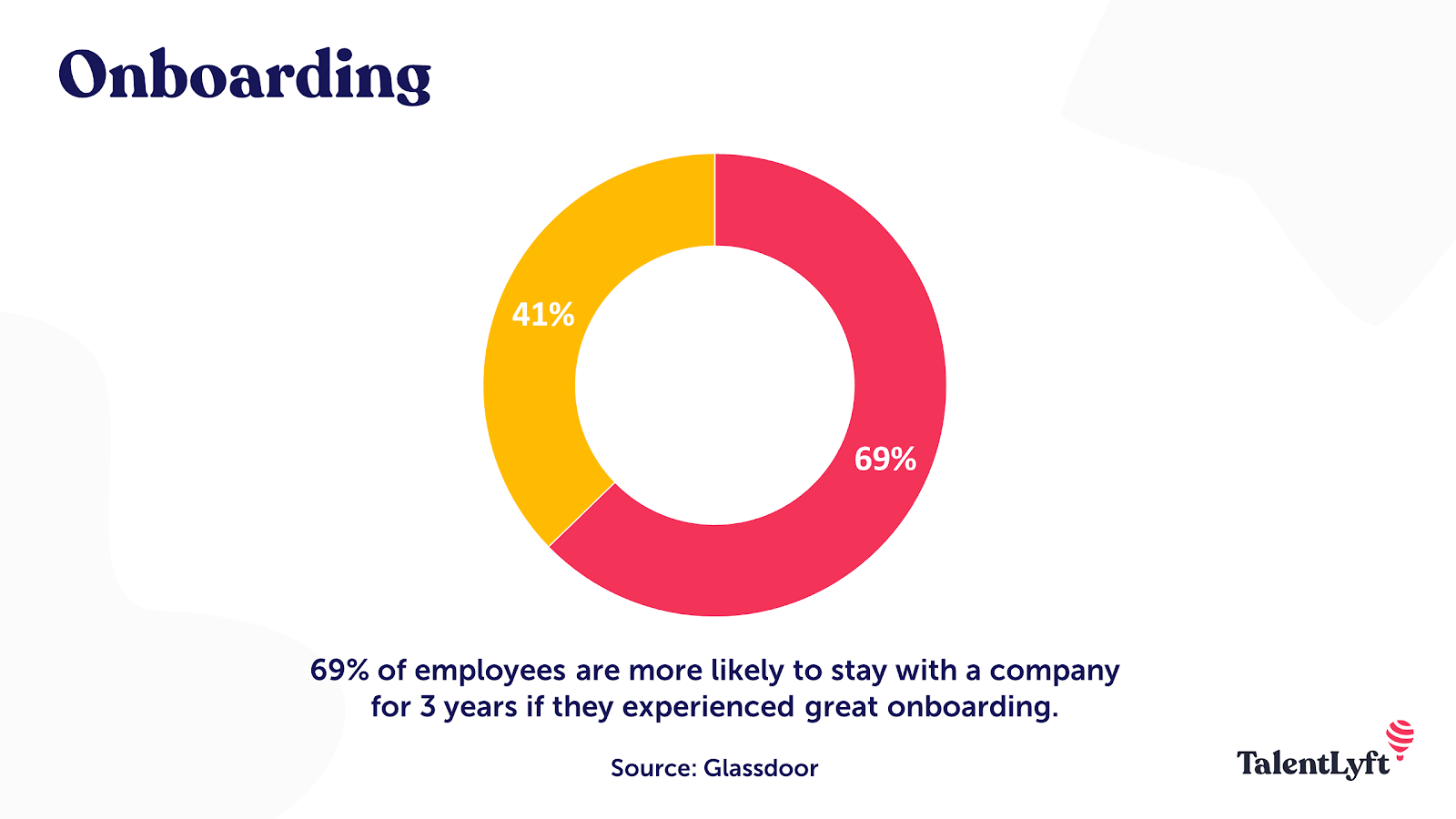
Using a chatbot has direct benefits for your recruitment process:
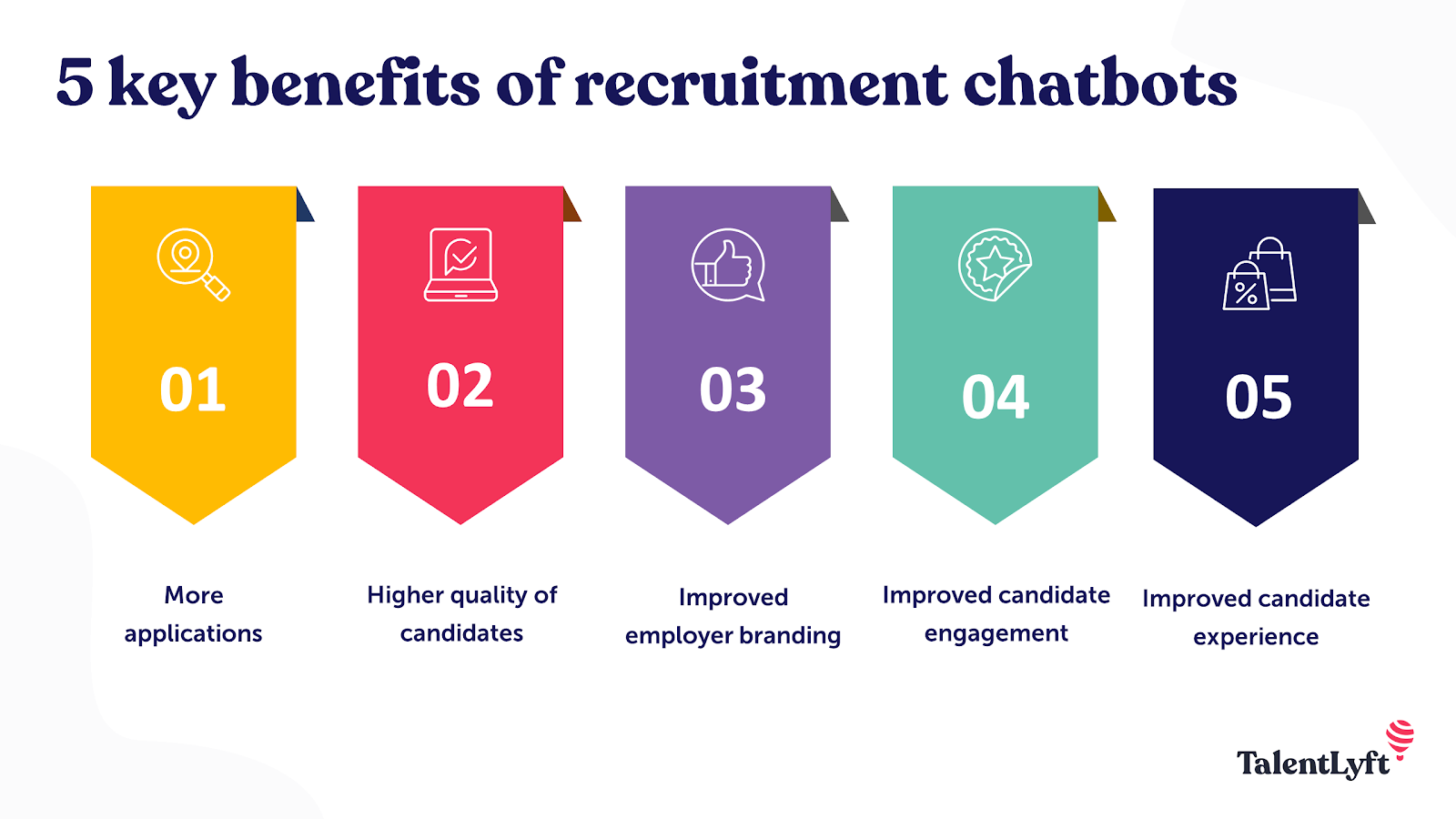
Smashfly reports that 74% of job seekers drop off the application process before they finish it. And bot’s prompt responses keep potential applicants interested longer. The result is an increased number of potential employees who submit their resume.
The most qualified candidates usually need more information before they decide to complete the application form. Thus, by providing detailed answers to their questions, the chatbot will encourage many of these in-demand candidates to eventually fill out your form. Thus, you get an opportunity to choose from better quality candidates. And the very quality of recruiting will be higher too.
The company reputation always matters, but it is especially important at the very beginning when job seekers visit your website for the first time. The lack of proper interaction and information will encourage them to advise their friends not to waste their time contacting your company.
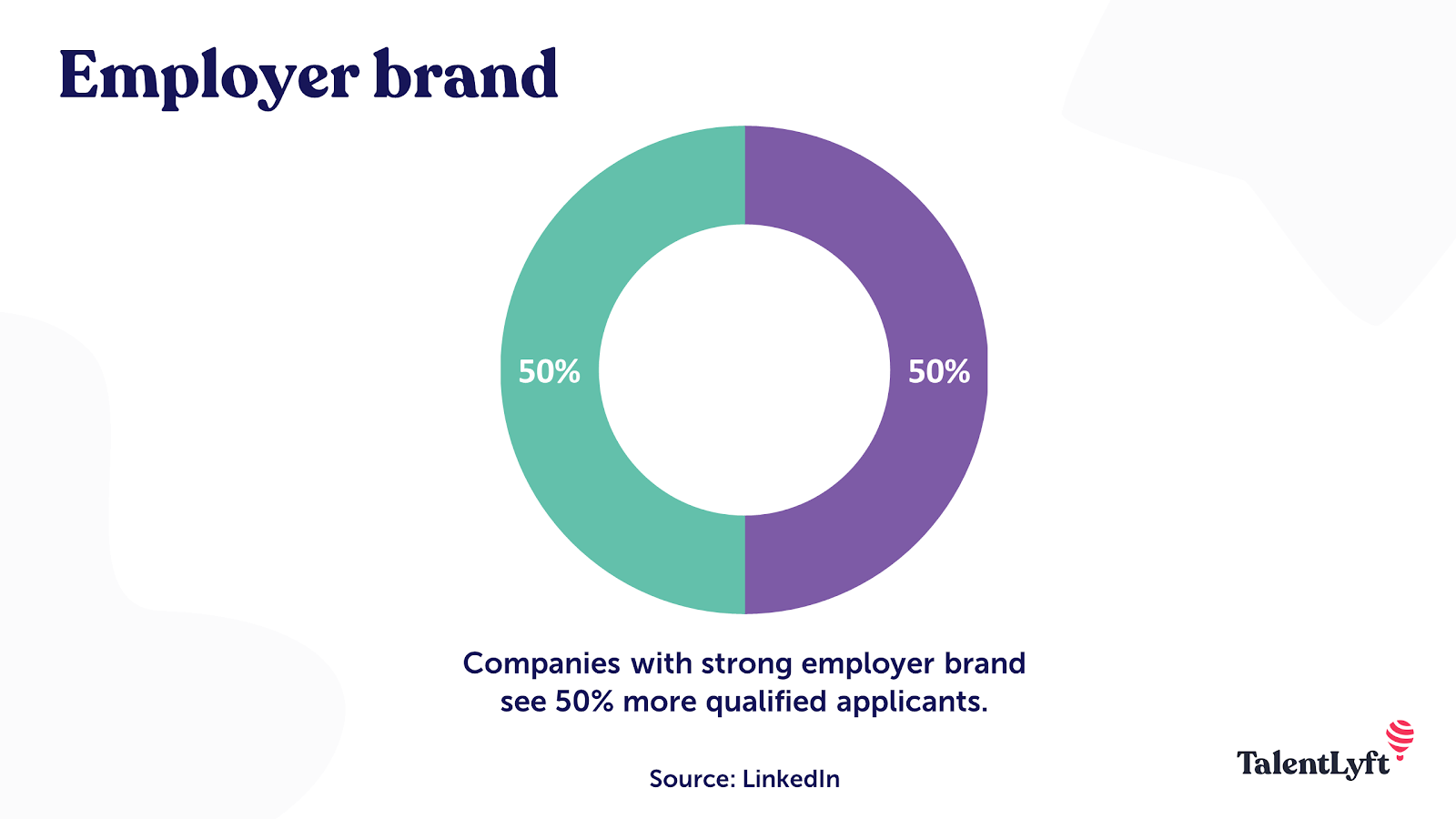
Accurate and complete answers increase the speed of decision-making. The chatbot can provide a high degree of accuracy, allowing the candidate to apply without additional questions. Artificial intelligence technologies make it possible to program a bot with answers to all possible questions about your company in general and about the job in particular.
Personalized responses have a large impact on the candidate experience. Modern AI technologies allow bots to keep the conversation and constantly upgrade their knowledge. It makes the answers personalized and adapted to the needs of a particular user. This personalization is more likely to result in answers that meet the expectations of the applicants and therefore have a greater impact on them.
The use of recruitment chatbots brings a lot of additional advantages not only for recruiting but also for your whole company:
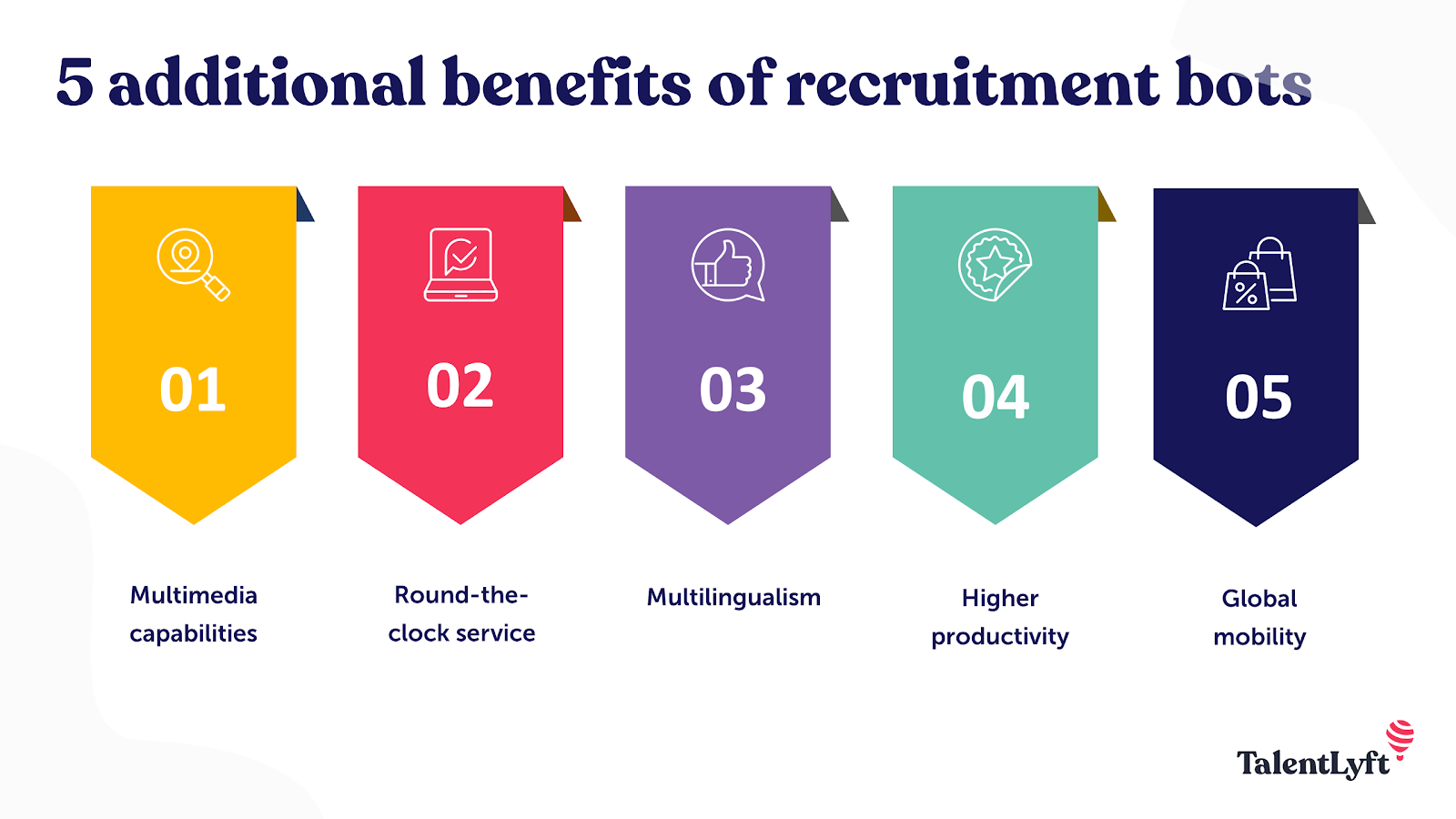
The chatbot can answer questions in different ways - for example, using voice, text, and in some cases, it can recommend watching a video.
Recruitment chatbots work 24/7. They do not need breaks and rest. They are available anytime any potential candidate from any place on the Earth is awake and has a question of needs assistance.
Chatbots are the most competitive and affordable HR alternative. It is too expensive to keep staff 24/7. Moreover, chatbots can understand and answer questions in different languages. In an international company, you simply cannot afford to have as many multilingual employees as you may need. If the chatbot reaches the limit of its capabilities in the dialogue, you always have the option of switching the applicant directly to a live employee.
Chatbots may process hundreds of questions and calls daily. They can take over the boring, repetitive tasks that would otherwise take up a lot of time for your recruiters. When you’re using a chatbot, you give recruiters more valuable time for important tasks.
Chatbots are available to every job seeker with a mobile device and Internet access from anywhere in the world.
Recruitment chatbots are already widely implemented in the HR sphere. In the United States, robots are recruiting employees for the army, in universities, and in government institutions.
🤖 For example, in the American army, there is Sergeant Star bot which easily replaces 55 recruiters, and has already answered more than 11 million questions.
🤖 The U.S. General Services Administration launched Mrs. Landingham bot which helps new employees with the onboarding process.
Some prestigious US universities accept students only in this way because it is not always possible to understand whether the diploma of general education corresponds to what the applicant received in practice.
🤖 In Georgia State University, bot Pounce helps students navigate the application process. The main advantage of bots is that they work 24 hours a day, 365 days a week, and do not require wages. Using specific criteria, they carry out the initial processing of the resumes, select suitable ones, and pass them to the next stage, which is handled by a person.
The downside of HR bots is that they work on the basis of algorithms. Therefore, all possible variants of events cannot be programmed. Robots fail to solve some problems. ❌
For example, they will not be able to manage the conversation between the applicant and his future manager at the interview, answer atypical and unexpected questions of the applicant, correlate his expectations with the already formed corporate culture of the employer.
The HR industry will still require human specialists for these purposes. ✅
Eliza Medley is an experienced writer and psychologist. She is actively interested in management, new technologies, and writing motivational articles. And also trying to go with time with modern trends. Inspires people with her work to learn new things and reach new heights. Follow @Eliza_Medley on Twitter.


